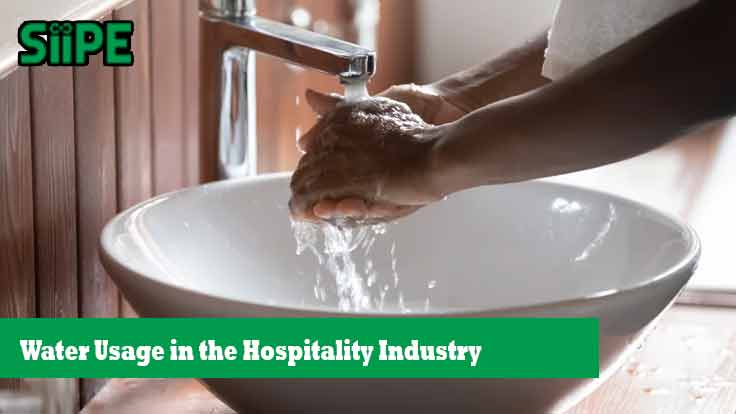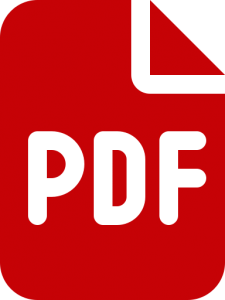The hospitality industry is a major global consumer of water resources. From luxurious five-star resorts to compact city hotels and vibrant restaurants, water is essential to day-to-day operations. While guest comfort remains the top priority, growing environmental concerns and rising utility costs are forcing the industry to rethink how water is managed.
With increasing global water scarcity and pressure from eco-conscious travelers, sustainable water use has become not only a moral obligation but also a business imperative.
Where Water Is Used in Hospitality
Water consumption in hospitality businesses covers a wide range of functions. The following categories illustrate the key areas where water is commonly used:
1. Guest Accommodation Areas
-
Showers, sinks, and toilets: Bathrooms in guest rooms account for a large portion of total consumption.
-
Linen and towel washing: Hotels often launder large volumes daily, sometimes unnecessarily due to guest preferences.
-
Room cleaning: Housekeeping uses water for mopping, dusting, and general hygiene.
2. Food and Beverage Operations
-
Kitchen operations: Cooking, washing ingredients, and dishwashing all require clean water.
-
Sanitation: Maintaining hygiene standards in food preparation areas relies on consistent water use.
-
Beverage services: Ice machines, coffee makers, and soda fountains all use water either directly or indirectly.
3. Recreation and Wellness Facilities
-
Swimming pools and spas: Require large volumes for initial filling and ongoing maintenance.
-
Steam rooms and saunas: Rely on constant water input to generate steam and maintain humidity.
-
Fitness centers: Showers and locker room facilities increase water usage significantly.
4. Outdoor and Landscaping Areas
-
Gardens and lawns: Irrigation systems, often operated daily, can be wasteful if poorly managed.
-
Golf courses (for resort hotels): Use thousands of liters of water per day.
-
Water features: Fountains and artificial lakes enhance ambiance but require maintenance and refilling.
5. Operational and Technical Use
-
Cooling systems and boilers: HVAC and central heating units often depend on water.
-
Cleaning and maintenance: Floor scrubbing machines, laundry rooms, and sanitation systems require water constantly.
-
Fire suppression systems: Though rarely used, water must be available in large quantities for emergencies.
Water Consumption by the Numbers
Water usage varies depending on the type and size of the establishment. Here are some commonly cited statistics:
-
Luxury hotels can use 1,000–2,000 liters of water per guest per day, especially those with pools and large-scale kitchens.
-
Budget hotels may use 250–600 liters per guest per day.
-
Restaurants use about 5–10 liters of water per meal served, depending on kitchen efficiency.
-
Golf resorts can use up to 1 million liters of water daily just for maintaining the course.
In many cases, inefficient plumbing, excessive laundry, and guest habits inflate these figures unnecessarily.
Challenges in Managing Water Use
Despite its importance, water usage is often overlooked in operational strategies. Hospitality businesses face several challenges:
1. Unpredictable Guest Behavior
Guests, particularly in upscale facilities, may overuse water. Long showers, frequent linen changes, and running taps contribute to waste. Since water is bundled into room rates, there’s little motivation to conserve.
2. Aging Infrastructure
Older hotels may rely on outdated plumbing systems that leak or function inefficiently. Small drips from taps and toilets can lead to thousands of liters wasted monthly.
3. Lack of Monitoring Tools
Many establishments lack precise tools to measure real-time water consumption. Without accurate data, it’s difficult to set realistic targets or detect leaks.
4. Climatic and Seasonal Pressure
In regions where tourism peaks during dry seasons, hotels may strain already limited local water supplies—leading to conflicts with local communities and rising costs.
5. High Dependence on Outsourced Laundry
Some hotels outsource laundry to industrial cleaning services, which may use water-intensive processes without sustainable practices.
Environmental and Business Impacts
Wasting water has both ecological and financial consequences:
-
Environmental impact: Overuse of fresh water can deplete local aquifers and disrupt natural ecosystems.
-
Energy use: Water heating accounts for a large share of energy consumption. Reducing water use also reduces carbon emissions.
-
Rising costs: Water and wastewater bills are increasing worldwide, squeezing profit margins for hospitality operators.
-
Reputational risk: Eco-conscious travelers are likely to avoid businesses with poor sustainability records.
Effective Water Conservation Strategies
Fortunately, many practical and cost-effective solutions are available:
1. Upgrade Fixtures and Appliances
-
Install low-flow showerheads and faucets: These can cut water use by up to 50% without affecting guest satisfaction.
-
Use dual-flush toilets or waterless urinals: Drastically reduces toilet water usage.
-
Invest in high-efficiency dishwashers and laundry machines: These save both water and energy.
2. Smart Metering and Leak Detection
Modern smart meters allow for real-time monitoring of usage patterns. This helps detect leaks early, identify wastage hotspots, and adjust practices accordingly.
3. Educate Staff and Guests
-
Train housekeeping and maintenance teams on efficient cleaning and maintenance techniques.
-
Use signs or digital nudges to encourage guests to reuse towels or limit linen changes.
4. Harvest Rainwater and Reuse Greywater
-
Collect rainwater from rooftops for landscape irrigation or toilet flushing.
-
Recycle greywater from sinks and showers for non-potable uses.
5. Implement Sustainable Landscaping
-
Replace thirsty plants with drought-resistant species.
-
Use drip irrigation systems that target water directly to plant roots.
-
Water lawns in the early morning or evening to minimize evaporation.
Industry Examples of Water Stewardship
-
Accor Hotels has committed to reducing water usage per guest by 20% across all properties.
-
Hilton uses smart irrigation systems and guest communication to encourage towel reuse, saving millions of liters annually.
-
Six Senses Resorts collects rainwater and reuses greywater extensively, aiming for closed-loop water systems.
Regulations and Certifications
Complying with water-efficiency regulations not only avoids penalties but also boosts brand credibility.
-
LEED Certification (Leadership in Energy and Environmental Design): Rewards properties that reduce water and energy usage.
-
Green Key and EarthCheck: Recognize sustainability efforts in the tourism sector.
-
Local water codes: Often require hotels to submit annual water audits or maintain certain efficiency standards.
Toward a More Water-Efficient Hospitality Sector
Water usage in the hospitality industry is a significant operational and environmental factor. Hotels, restaurants, and resorts depend on water to deliver services, but excessive or careless usage leads to waste, rising costs, and environmental harm.
Adopting efficient water practices is not just about saving money—it’s about long-term sustainability, regulatory compliance, and meeting the expectations of today’s conscious consumers. With smart strategies, the industry can continue to deliver high-quality experiences while preserving this vital resource.











